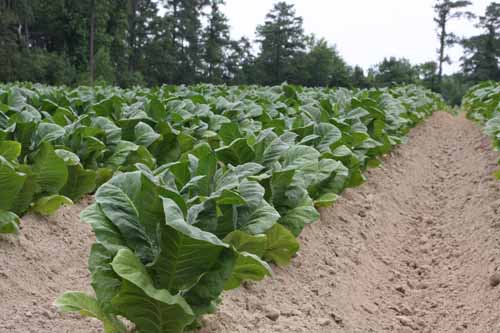In addition to the problems caused to them by ongoing international tariff-related trade battles, North Carolina tobacco farmers face a new hurdle to selling their crop because the US Food and Drug Administration is pushing to reduce nicotine levels in cigarettes to non-addictive levels, according to a story by Cullen Browder for WRAL-TV.
North Carolina has long been the number-one tobacco-producing state in the US, and while it grows only half the amount of tobacco it did 20 years ago, changing this cash crop would impact about 1,500 farm operations across the state.
Sixty percent of North Carolina tobacco is sold overseas, and Graham Boyd, executive vice president of the Tobacco Growers’ Association of North Carolina, said the US already faced tough competition from countries that wouldn’t face the same nicotine restriction.
Both the association and the North Carolina Department of Agriculture and Consumer Services have raised concerns about the FDA plan.
“What matters to us is, does this put us at a competitive disadvantage in the marketplace from a global perspective?” Boyd said.
Meanwhile, Loren Fisher, the Philip Morris Professor in the Crop and Soil Sciences Department of North Carolina State University, said that reducing nicotine in tobacco plants was no easy task.
“Those varieties don’t exist,” Fisher said. “It would take some time with plant breeding. It would be a conventional breeding program. If you were starting at ground zero, it could take 10 to 12 years.”
Genetically modified plants would provide a quicker transition, but Fisher said international buyers were leery of GMO products.
“That is not accepted by consumers and especially our customers outside the US who purchase tobacco that we grow in the United States,” he said. “Transgenic tobacco is not acceptable.”
Growing worries for farmers

